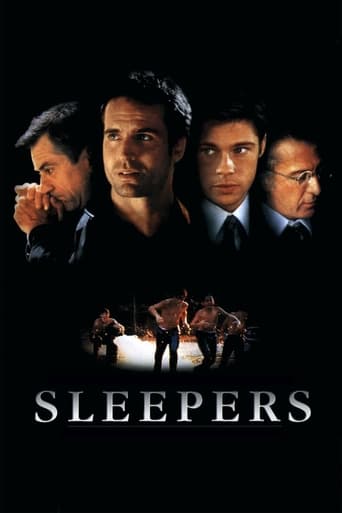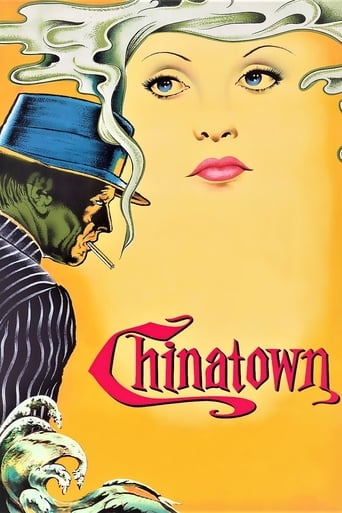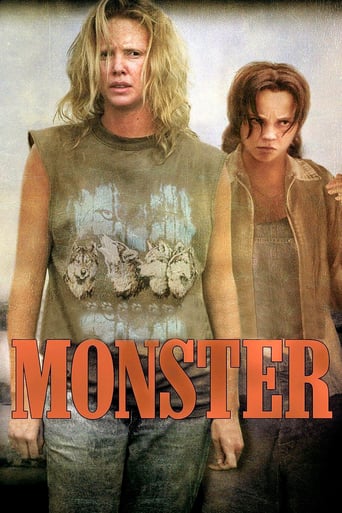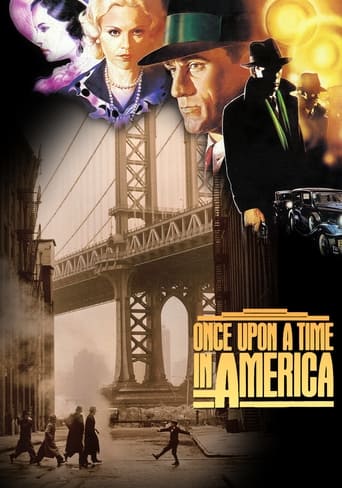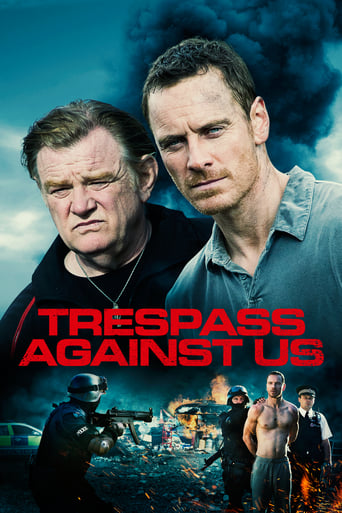
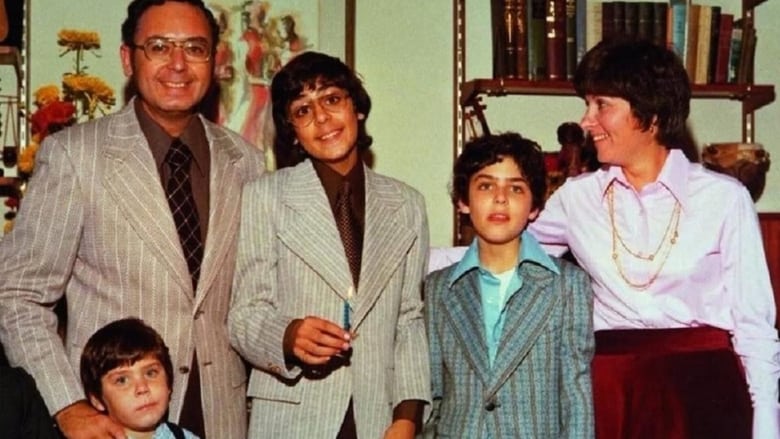
Capturing the Friedmans (2003)
An Oscar nominated documentary about a middle-class American family who is torn apart when the father Arnold and son Jesse are accused of sexually abusing numerous children. Director Jarecki interviews people from different sides of this tragic story and raises the question of whether they were rightfully tried when they claim they were innocent and there was never any evidence against them.
Watch Trailer
Cast


Similar titles
Reviews
One of the most difficult things to come to terms with in life is the way a seemingly nice, soft-spoken, accomplished person can actually be a monster. Can the alter ego even be likable? Are there good characteristics alongside the evil ones? That said, I came out at the end of the movie not knowing how to feel and not having a gut feeling about the reality either way.For all intents and purposes, this was a model family and every home movie reflects smiles and affection. The inner workings of the relationships are strange to me and the personalities are certainly unusual, but still, there seems to be love. And being unusual isn't indicative of evil doings in and of itself.It's hard to think about but fascinating to imagine the possibility of it all being a planted idea.
"Capturing the Friedmans", directed by Andrew Jarecki, connects to the human condition by first presenting us with a picture of what we've come, as a society, to believe an upper-middle class family looks like, then it turns that ideal over, to view the underbelly and inner-workings of the family unit. The fact that a large part of the footage was shot by David Friedman, eldest son of convicted pedophile Arnold Friedman, gives the footage an essence of raw truth. We see the happy family in candid clips of their birthdays, celebrations and road trips. And we watch, helpless as their family unravels. Jarecki navigates the audience through interviews, changing testimonies, and conflicting memories that inform us; the perception of truth is mutable.David Friedman filmed the drama of his family falling apart as if it were a soap opera. The facade of the ideal family crumbles as Jarecki compiles newsreels, photographs, and interviews with family, friends, student's parents and the authorities that force us to consider an awful truth. Despite education, money, respect in the community, and an overall stable appearance, Arnold Friedman and Jesse Friedman were convicted of horrendous crimes that were reportedly committed in their home. The Plot Arnold Friedman is a family man, respected in the community. He teaches computer classes to children ages 8 – 11. His life begins a downward spiral when it's discovered that he's been purchasing kiddie porn from the Netherlands. An investigation is opened, his house is searched and his collection of magazines is confiscated. When the police find a list of his young students, they become suspicious about Friedman's intentions and begin an investigation.Witnesses start coming forward after initial questioning begins. The allegations of sexual abuse by Arnold Friedman and his youngest son Jesse Friedman seem to be endless. Father and son are ultimately convicted and sentenced. In the end, Arnold Friedman confesses that he is a pedophile and he molested his son Jesse. He kills himself with an overdose of anxiety medication while serving his sentence. After his father goes to prison, Jesse Friedman pleads guilty and is convicted of sexual molestation and sodomy. Once the judge sentences him, Jesse Friedman emphatically denies his guilt and states that he was coached by his lawyer who advised him to plead guilty. He also disputes his father's claim, that he was one of his father's victims. However, under oath he alleged that his father had, in fact, molested him. After recanting this statement, Jesse Friedman remained steadfast in his claim that he was not guilty and was released in 2001, after serving only thirteen years of his sentence. Theme: The perception of truth is mutable.Subtext: We are presented with disparaging facts and testimony throughout the film. It seems as if everyone is trying to convince us (or maybe themselves) of either the Friedman's guilt, or their innocence. According to noted author Vikki Bell, "The film itself problematizes the notion of 'reviewing' and especially the nature of 'evidence' where that evidence relies upon memory." (Theory, Culture and Society. P. 91). In the case of the Friedmans, the review is most decidedly problematic. Many of the 'players' in this drama change their testimonies. Their memories are informed by the passage of time and the events that have taken place since the incidents. Jesse Friedman admitted that he lied in his testimony at his trial, albeit because he was supposedly instructed to do so by his attorney. He stated that his father had molested him. But his testimony changed when it appeared that the confession would do nothing to aid his cause. Many of the children that came forward during the trial repudiated the charges as adults, claiming no memory of the incidents.Aesthetics: The subtext that review is problematic, and becomes more so when that review is based upon memory, illustrates that presentation informs the perception of truth, making it mutable. We see this message throughout the film. In one clip, Elaine Friedman talks about her memories of being presented with the porn her husband had been purchasing. She says ". . . you know, I didn't see it. My eyes were in the right direction but my brain saw nothing. Because when it was all over the lawyers showed me the magazine and then I saw it for the first time, I really saw it." Her statement says everything about how we perceive information and about how truly mutable the perception of truth can be, when it's based on recollection. It also speaks to the fact that the perception of truth is mutable based upon what someone desires to see or remember. The intersection of plot, theme and editing: Jarecki pulls together the plot and the theme that the perception of truth is mutable, and proves it by using editing to create dramatic impact and influence judgment. According to research done by The Leadership Council on Child Abuse and Interpersonal Violence, there was substantial evidence that was left out of the film (through editing). This "leaving out" of information creates an environment aimed at questioning the outcome of the trials.
Nassau County district attorney, Kathleen M. Rice, re-investigated the case of Jesse Friedman in 2013 to determine whether his conviction should be upheld or overturned. Their report, prepared by an independent review panel, demonstrate Capturing the Friedman's is, in the mildest terms 'incomplete, and in some points, even incorrect, either case misleading.Here are some of the key points taken from the report (which can be found online in District Attorney's web site). With respect to the Jesse Friedman case, the report says: " None of the five individuals who Friedman advocates suggest "recanted" have, in fact, recanted to any degree of legal certainty. Three have not recanted at all. Reviews of transcripts concerning these individuals reveal that abuse occurred. Another who spoke to the Review Team stood by his account, in contrast to the statement he gave to filmmakers. The subject of the most recent purported recantation has refused to speak to the Review Team or even confirm he wrote the letter outlining the claim, which was provided to the Review Team by Jesse Friedman's lawyer." "Unedited film transcripts of Judge Abbey Boklan and Detective Anthony Squeglia show that each was the subject of selectively edited and misleading film portrayals in Capturing the Friedmans." "The "Meyers Tape" – one of only two pieces of direct evidence of heavy-handed police interviewing techniques cited by Friedman, his advocates and the Court – is, in fact, no tape at all. All that remains of a tape that hasn't existed for more than two decades are notes taken during its screening by a Jesse Friedman attorney. Those notes, presumably limited to information the attorney found helpful to his client's case, were then reduced and curated by filmmakers, and read dramatically by Friedman's attorney in Capturing the Friedmans." "A sworn affidavit from the therapist who treated former student "Computer Student One," stated that she never performed hypnosis on the child. A portion of an unedited transcript of the film's interview with "Computer Student One" contradicted his claim of pre-outcry hypnosis and had been edited out. "Computer Student One" claimed in a 2004 media report that Capturing the Friedmans "twisted" his account. The filmed allegations of "Computer Student One" remain the only direct evidence offered by Friedman or his advocates suggesting that hypnosis was used to induce victims to make accusations in this case."I also find it difficult to understand how these basic facts are totally omitted in the documentary, such as: "While maintaining his innocence prior to his eventual guilty plea, Friedman commissioned and failed at least two lie-detector tests."Overall I found the film, especially the narcissism still preserved in Friedmans' character interesting enough to google the case. In this sense, I guess that makes it good fiction movie, but still not a documentary.
If Arnold didn't do anything, where was the rage? Why wasn't he pounding his fists on every table he could find, furiously proclaiming his innocence? Instead he'd just sit there like a lump, seemingly dissociated from his surroundings, as his sons jumped through hoops to defend him.It was painful seeing beautiful-eyed David going about his business as a clown in the face of the anguish his family was experiencing. Later some Internet research revealed that he can be a sardonic clown indeed (and he's the most successful and probably priciest birthday-party clown in New York City). The younger males in this family were always clowning and roughhousing around, probably as an unconscious defense against the leaden depression in the home, with its closeted-homosexual, pedophile father and lied-to mom who was rejected from the boys' club and stuck in a joyless marriage.So much about Arnold seemed encapsulated in the interview given by Jesse's lawyer, who revealed that Arnold admitted to having been aroused by a young boy in the jail=house interview room. Absolutely stunning material.I almost jumped out of my seat (with joy) during the epilogue when I learned about the mother's life following Jesse's imprisonment. And yet the mother-son hug at their reunion was entirely believable.This documentary leaves many striking characters in mind. How intriguing that the uncle's homosexuality was left until practically the penultimate frame. And I was left wondering about his relationship, if any, with his nephews. Was the lack of any apparent interaction a function only of his living on the West Coast? And his handling of Arnold's talk of having "messed around" seemed part of the understatement that defined his older brother. Very odd, indeed.The death of he and Arnold's sister, at only 8, by lead poisoning, was an extremely troubling and unexpected point that should definitely have been explained further. Those ghostly film clips of her ballet will haunt me...But caveats like these detract only scarcely from a fully compelling film.


